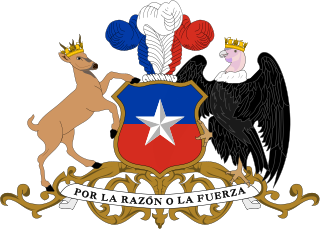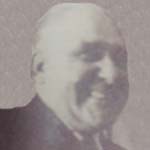
Juan Antonio Ríos Morales was a Chilean political figure, and President of Chile from 1942 to 1946, during the height of World War II. He died in office.
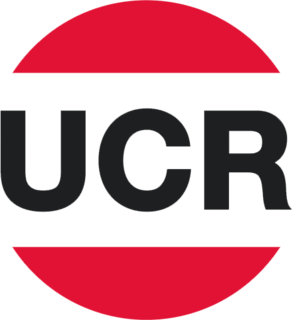
The Radical Civic Union is a centrist social-liberal political party in Argentina. The party has been ideologically heterogeneous, ranging from classical liberalism to social democracy. The UCR is a member of the Socialist International.
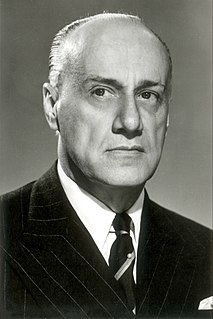
Jorge Alessandri Rodríguez was the 27th President of Chile from 1958 to 1964, and was the candidate of the Chilean right in the crucial presidential election of 1970, which he lost to Salvador Allende. He was the son of Arturo Alessandri, who was president from 1920 to 1925 and again from 1932 to 1938.
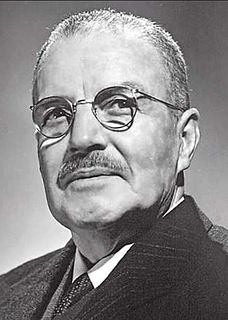
Presidential elections were held in Chile on 4 September 1952. The result was a victory for Carlos Ibáñez del Campo, who ran as an independent.

Presidential elections were held in Chile on February 1, 1942. The result was a victory for Juan Antonio Ríos of the Radical Party, who received 56% of the vote.
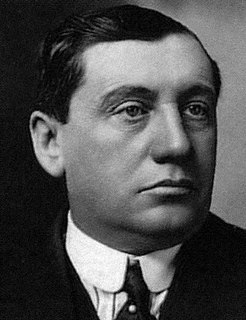
General elections were held in Chile on 30 October 1932. Arturo Alessandri of the Liberal Party was elected president, whilst the Conservative Party and Radical Party emerged as the largest parties in the Chamber of Deputies.
The Radical Democracy, was a Chilean centre-right political party. The party, created in 1969, was dissolved in 1973, and reappeared in 1983 before disbanding permanently in 1990.
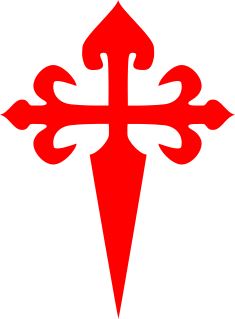
The Conservative Party of Chile was one of the principal Chilean political parties since its foundation in 1836 until 1948, when it broke apart. In 1953 it reformed as the United Conservative Party and in 1966 joined with the Liberal Party to form the National Party. The Conservative Party was a right-wing party, originally created to be the clericalist, pro-Catholic Church group.
The Liberal Party of Chile was a Chilean political party created by a faction of pipiolos in 1849. After the conservative victory in the Chilean Civil War of 1829 the liberals became the principal opposition party to the Conservative Party. During the Liberal Party's early history one of its main goal was to create a new constitution to replace the Chilean Constitution of 1833. Rigged election helped to prevent the Liberal Party's presidential candidates to be elected until 1861, during that time elements of the liberal party made attempts to overthrow the government, these were the Revolution of 1851 and the Revolution of 1859. These failed insurrections led a large number of liberals into exile, among them Benjamín Vicuña Mackenna. In 1863 a group of liberal split off to form the Radical Party which would hold power from 1938 to 1952. Originally an anticlericalist party that championed classical liberalism, the liberals later became a right-wing party.

The Radical Party of Chile was a Chilean political party. It was formed in 1863 in Copiapó by a split in the Liberal Party. Not coincidentally, it was formed shortly after the organization of the Grand Lodge of Chile, and it has maintained a close relationship with Chilean Freemasonry throughout its life. As such, it represented the anticlericalist position in Chilean politics, and was instrumental in producing the "theological reforms" in Chilean law in the early 1880s. These laws removed the cemeteries from the control of the Roman Catholic Church, established a civil registry of births and death in place of the previous recordkeeping of the church, and established a civil law of matrimony, which removed the determination of validity of marriages from the church. Prior to these laws, it was impossible for non-Catholics to contract marriage in Chile, and meant that any children they produced were illegitimate. Non-Catholics had also been barred from burial in Catholic cemeteries, which were virtually the only cemeteries in the country; instead, non-Catholics were buried in the beaches, and even on the Santa Lucia Hill in Santiago, which, in the 19th century, functioned as Santiago's dump.

The Presidential Republic is the period in the History of Chile spanning from the approval of the 1925 Constitution on 18 September 1925, under the government of Arturo Alessandri Palma, to the fall of the Popular Unity government headed by the President Salvador Allende on September 11, 1973. The period spans the same time as the "Development inwards" period in Chilean economic history.
The Radical Governments of Chile were in power during the Presidential Republic from 1938 to 1952.

The United Conservative Party was a right-wing Chilean political party founded in December 1953 after the merger of the Traditionalist Conservative Party and a faction of the Social Christian Conservative Party, issued from the Conservative Party. It supported for the 1958 presidential election the candidacy of Jorge Alessandri and participated, along with the Liberal Party and supporters of former president Carlos Ibáñez del Campo, in its government. In 1962, it participated in the Democratic Front of Chile center-right coalition which opposed the left-wings FRAP coalition and supported for the 1964 presidential election Eduardo Frei Montalva.

The Agrarian Labor Party was a Chilean political party supporting the candidacy of Carlos Ibáñez del Campo for the 1952 presidential election. Formed in 1945, it was dissolved in 1958.

Eduardo Cruz-Coke Lassabe was a Chilean political figure, the conservative candidate in Chile's 1946 presidential election and the principal creator of the Chilean health system.
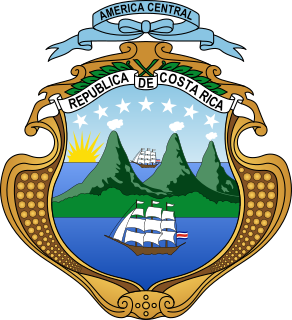
General elections were held in Costa Rica on 14 February 1932. Ricardo Jiménez Oreamuno of the Independent National Republican Party won the presidential election, whilst the party also won the parliamentary election, in which they received 46.7% of the vote. Voter turnout was 64.2%.
The Democratic Party of Chile was a Chilean political party created by a left-wing faction of the Democrat Party in 1932. It was created by a leftist faction of the Democrat Party, which opposed the right-wing group that officially supported the government of Arturo Alessandri.







